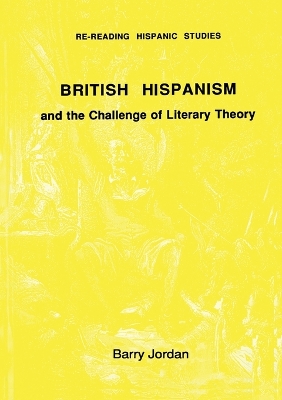Aris & Phillips Hispanic Classics
1 total work
British Hispanism and the Challenge of Literary Theory
by Barry Jordan and William Chester Jordan
Published 1 January 1990
These five articles, collected from journals not widely known in the Hispanic field, deal with issues of literary and cultural theory in relation to British Hispanism.
The first three items in this collection consider some basic questions of literary and cultural theory and critical practice: questions such as, what is literature? what is the nature of the criticism which supports and legitimises it? how far is the literary text a secure ontological object? where does meaning lie? does it lie in the text or the processes by which the text is consumed and reproduced? what is literary value? what sort of values and purposes does the academic institution exist to serve? what is the role of literary studies within it?
The last two essays adopt a more applied, pedagogical approach and attempt to survey the practices around literary studies within the modern language arena, especially in relation to British Hispanism. Here the author concerns himself with the nature of the discipline as presently constituted, its assumptions and major practices and asks how it constructs its versions of the foreign culture.
The first three items in this collection consider some basic questions of literary and cultural theory and critical practice: questions such as, what is literature? what is the nature of the criticism which supports and legitimises it? how far is the literary text a secure ontological object? where does meaning lie? does it lie in the text or the processes by which the text is consumed and reproduced? what is literary value? what sort of values and purposes does the academic institution exist to serve? what is the role of literary studies within it?
The last two essays adopt a more applied, pedagogical approach and attempt to survey the practices around literary studies within the modern language arena, especially in relation to British Hispanism. Here the author concerns himself with the nature of the discipline as presently constituted, its assumptions and major practices and asks how it constructs its versions of the foreign culture.
